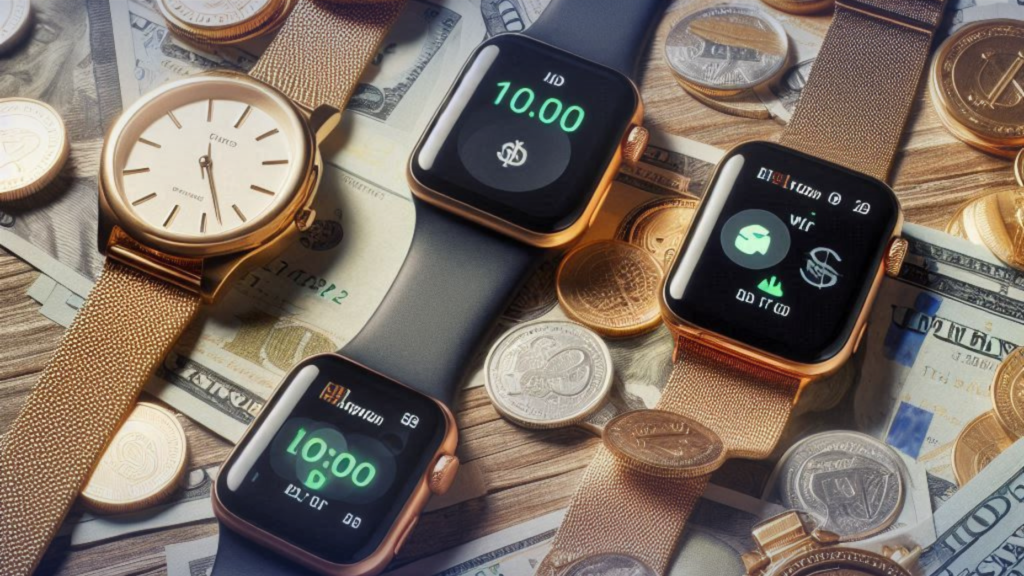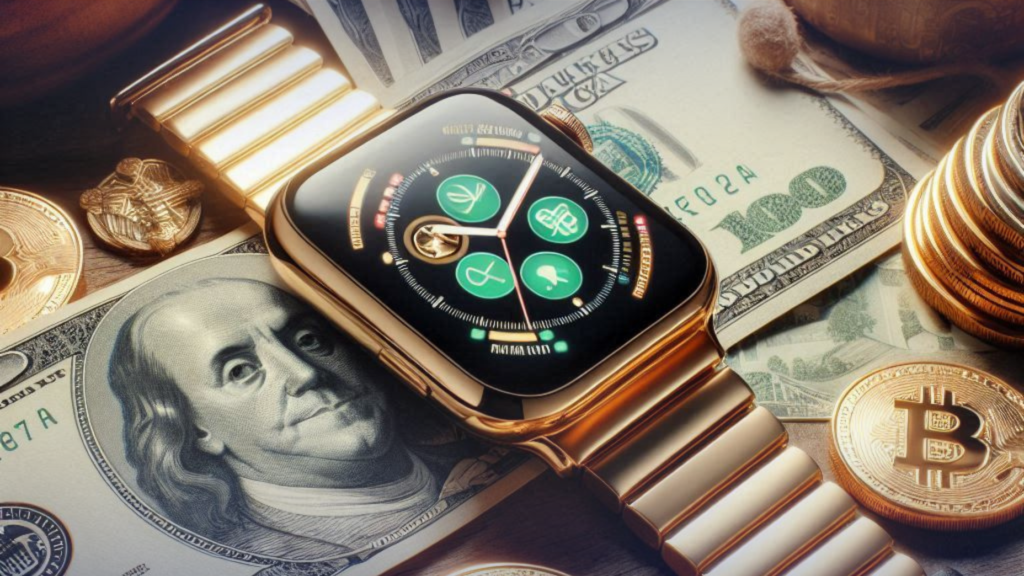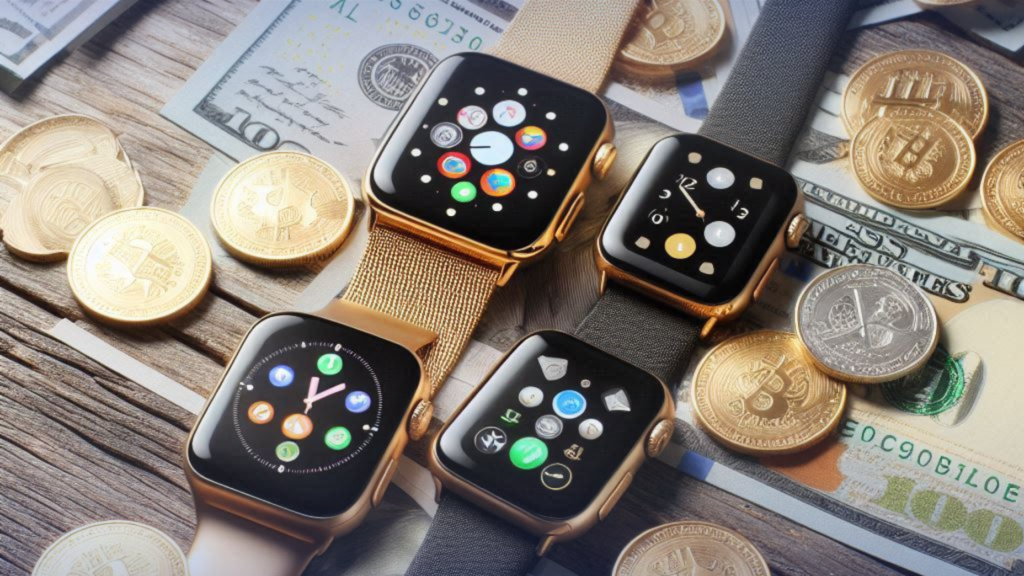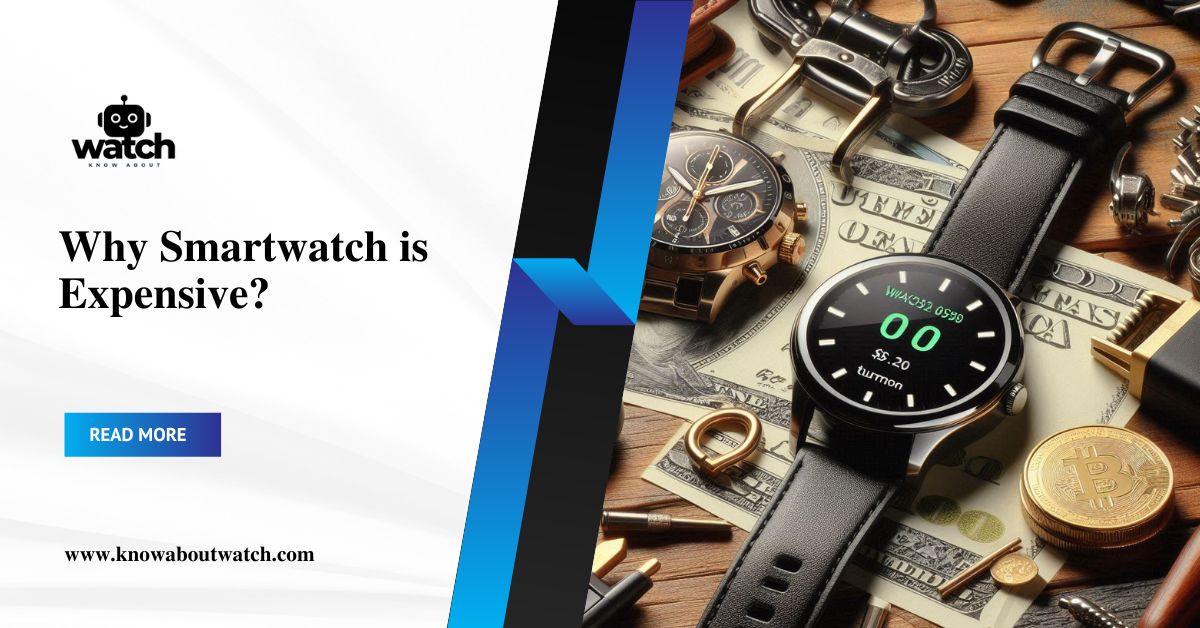Introduction
In today’s tech-driven world, smartwatches have evolved from being a luxury accessory to a daily essential for many. But as the demand grows, so does the price. Why is a smartwatch expensive? Is it just about the brand, or is there more beneath the surface? In this article, we’ll break down the factors that make smartwatches a pricey investment and why they might be worth every penny.

The Innovation Behind Smartwatches
Advanced Technology
One of the primary reasons why a smartwatch is expensive lies in its cutting-edge technology. Unlike regular watches, smartwatches are packed with a plethora of features, from fitness tracking to heart rate monitoring, GPS, and even the ability to make calls. The integration of such high-tech components in a compact, wrist-sized device is no small feat.
Research and Development Costs
Developing a smartwatch involves extensive research and development (R&D). Leading tech companies invest millions of dollars in innovating and improving the technology. Whether it’s creating a more accurate sensor or developing an efficient processor, the costs of R&D are substantial and directly impact the retail price.

Design and Build Quality
Premium Materials
Another factor contributing to why a smartwatch is expensive is the use of premium materials. Many high-end smartwatches feature materials like stainless steel, sapphire crystal, and ceramic, which not only enhance durability but also add to the aesthetic appeal. These materials are costlier than the plastic or resin used in cheaper models.
Craftsmanship and Branding
Smartwatches from luxury brands come with a price tag not just for the technology but for the craftsmanship and brand value. The meticulous attention to detail, the precision in manufacturing, and the exclusivity associated with certain brands all add up, making these devices a symbol of status.

Features That Justify the Cost
Health and Fitness Tracking
Smartwatches have revolutionized personal health management. With features like ECG monitoring, blood oxygen levels, and sleep analysis, they provide insights that were once only possible through professional medical equipment. The development and integration of these advanced health features are complex and costly, which is why a smartwatch is expensive.
Connectivity and Compatibility
A smartwatch that seamlessly integrates with your smartphone, allowing you to receive notifications, control music, and even make payments, is not just a gadget but a sophisticated companion. The high level of connectivity and compatibility with various devices and apps is another reason for the steep price.

The Role of Software and Updates
Custom Operating Systems
Unlike traditional watches, smartwatches run on custom operating systems designed specifically for wearable devices. These systems are optimized for battery life, user interface, and functionality. The continuous updates to enhance performance and add new features are part of why a smartwatch is expensive.
Security and Privacy Features
In an era where data privacy is paramount, the security features of a smartwatch are crucial. From encrypting personal data to safeguarding financial transactions, the investment in cybersecurity for these devices is significant, contributing to their higher cost.
Conclusion
So, why is a smartwatch expensive? It’s the combination of advanced technology, premium materials, and a multitude of features packed into a small, wearable device. While the price might seem high, the value it offers in terms of health management, connectivity, and convenience makes it a worthy investment for many.
FAQs
Why are smartwatches so expensive?
Smartwatches are expensive due to their advanced technology, premium materials, and the costs of research, development, and branding. They offer health tracking, connectivity, and robust security, all packed into a compact and stylish design.
Is it worth spending money on a smartwatch?
Yes, it can be worth it if you value the convenience, health tracking, and connectivity that a smartwatch offers. It’s a versatile tool that can enhance your daily life, but its worth depends on your specific needs and how much you’ll use its features.
Which smartwatch is more expensive?
Luxury smartwatches from brands like Apple, TAG Heuer, and Hublot tend to be the most expensive. The Apple Watch Ultra, TAG Heuer Connected, and Hublot Big Bang e often top the list due to their premium materials, advanced features, and brand prestige.
Why do some smartwatches cost more than others?
Some smartwatches are more expensive due to the brand, materials used, and additional features such as advanced health monitoring or luxury design elements. R&D and marketing costs also play a significant role.
Is a smartwatch a good investment?
If you value the health features, convenience, and connectivity that a smartwatch offers, it can be a good investment. It’s important to choose a model that aligns with your needs and lifestyle.
Are there affordable alternatives to expensive smartwatches?
Yes, there are more budget-friendly smartwatches available that offer basic features. However, they might lack the advanced technology and premium materials found in higher-end models.
How does the battery life of expensive smartwatches compare to cheaper ones?
Generally, more expensive smartwatches have better-optimized systems that enhance battery life, but it also depends on usage and the features being used.
Do expensive smartwatches have better warranty and customer support?
Often, yes. Expensive smartwatches from reputable brands usually come with better warranty terms and customer support, offering peace of mind for the buyer.

